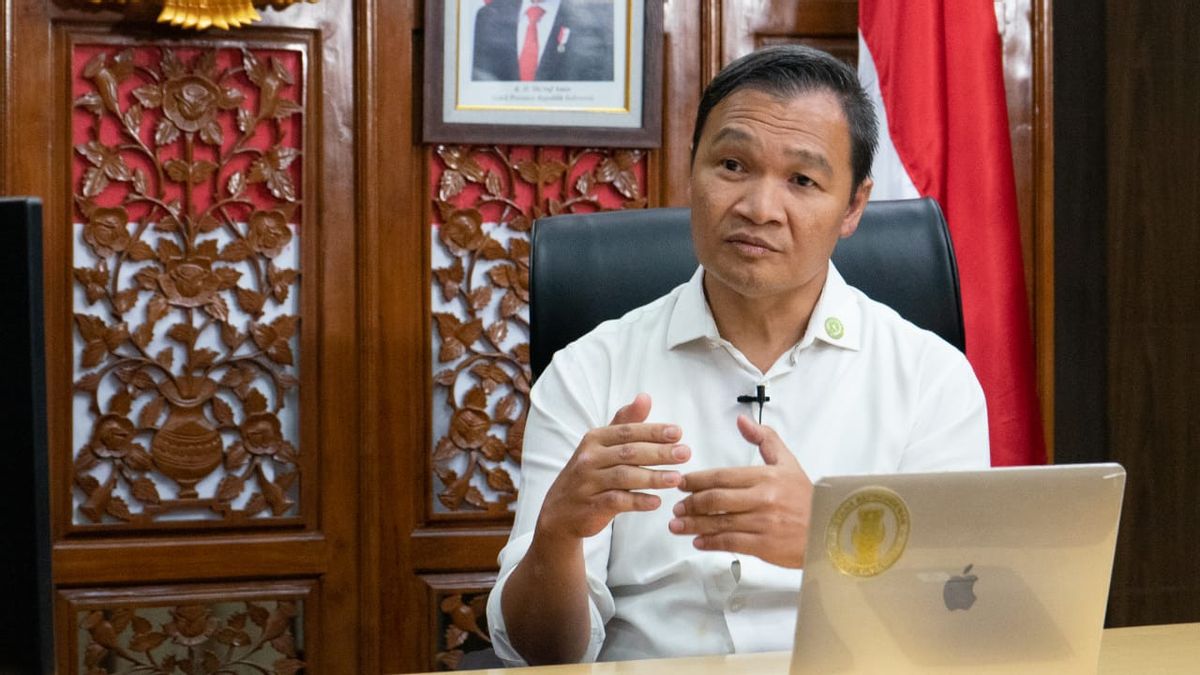JAKARTA - The government's policy of providing Government-Borrowed Value Added Tax (PPN DTP) incentives for the purchase of electric cars or buses is solely to save the condition of the state's environment and finances.
Expert Staff of the Presidential Staff Office, Hageng Suryo Nugroho, revealed that currently the use of conventional vehicles has contributed nearly 80 percent of carbon emissions in Indonesia. Whereas on the other hand, the government is committed to fulfilling Net Zero Emission by 2060.
"This has made the government very aggressive in encouraging the migration of conventional vehicles to electric vehicles," said Hageng, at the Bina Graha building in Jakarta, Tuesday, April 4.
He added that accelerating the migration of fossil fuel motorized vehicles to electric motorized vehicles will also reduce fuel imports. Where currently imports of fuel reach 1 million barrels per day of the total domestic consumption needs, which is 1.6 million barrels per day.
If the assumption that the world oil price is USD 80 dollars, Hageng explained, then the state money used for fuel imports reaches IDR 1.2 trillion per day.
"When world oil prices are volatile, of course the volume of fuel imports will put great pressure on the state budget. This must be saved," he said.
According to Hageng, the acceleration of the migration of conventional vehicles to electric vehicles can be done if the community as individual consumers is able to buy electric vehicles at affordable prices. For this reason, the government provides VAT incentives for DTP purchases of electric cars and electric buses.
This, he continued, has been regulated in Presidential Decree No. 55/2019 concerning the Acceleration of the KBLBB Program for Road Transportation. Namely, the provision of APBN facilities to support the acceleration of the use of KBLBB.
"It will take three years for the government to formulate derivative regulations and realize the subsidy for the purchase of KBLBB with the DTP VAT incentive scheme," said Hageng.
For information, as of April 1, 2023, the government stipulates the provision of VAT DTP incentives for four-wheeled vehicles and buses. This is stated in PMK No 38/2023 concerning Value Added Taxes for the delivery of certain four-wheeled KBLBB and certain bus KBLBB borne by the government for the 2023 fiscal year.
The provision of VAT DTP incentives for the purchase of four-wheeled KBLBB and buses that meet the Domestic Component Level (TKDN) of 40 percent, will be given 10 percent of DTP VAT. So that the VAT that must be paid is only 1 percent.
Meanwhile, the KBLBB bus with a TKDN value of 20 - 40 percent will be given 5 percent DTP VAT. So that the VAT that must be paid is only 6 percent.
Hageng, an Expert in the Energy Sector of KSP, assessed that the TKDN requirements are an important element to ensure Indonesia's role as the main player in electric vehicles, not just market targets.
"Do not let the domestic market be controlled by imported products and foreign companies. Our automotive industry must transform into a sovereign industry," he said.
On that occasion, Hageng believes that the provision of VAT DTP incentives for the purchase of four-wheeled vehicles and buses will have a broad impact on industrialization not only downstream but also upstream. Where the increase in demand will spur domestic electric car manufacturers, which ultimately has an impact on employment and state revenue.
"All impacts caused will be better off (better) for the government and the community," he concluded regarding the incentive policy for electric cars.
The English, Chinese, Japanese, Arabic, and French versions are automatically generated by the AI. So there may still be inaccuracies in translating, please always see Indonesian as our main language. (system supported by DigitalSiber.id)













